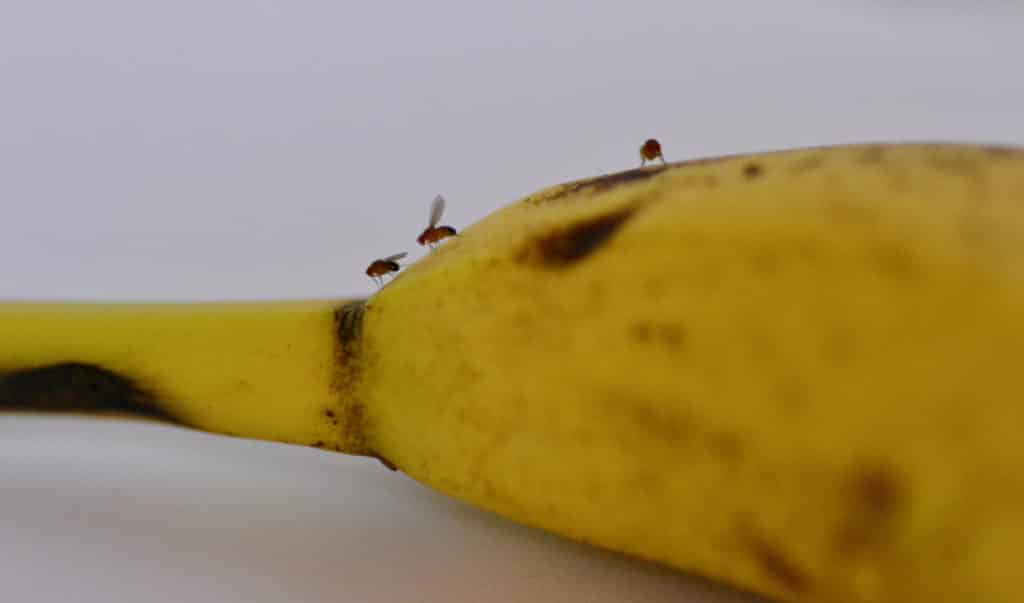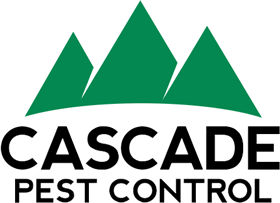Author: Kurt Treftz, Cascade Pest Control
If you’re continuing to bring produce into your home during winter and fall, there’s a chance that fruit flies are coming with it. While you might associate these pests exclusively with the warmer months of the year, they actually can pop up throughout the year. Because of this, it’s important to be aware and prepared year-round to avoid a massive infestation. With a combination of household items & professional knowledge, here is some helpful information and tips on how to get rid of fruit flies.
Fruit Fly Descriptors & Behaviors

They’re commonly confused with fungus gnats, which are dark brown/black pests of similar size. Fungus gnats nest in the soil of potted plants and are more attracted to decaying plant matter than fresh. You’ll see these across your house if they’ve been introduced, or even outdoors.
While they are aesthetically displeasing, fruit flies don’t cause any structural damage to your space at all. They can contaminate the produce you leave out, but otherwise they won’t harm you or the area they inhabit. Unfortunately, they don’t leave unless eliminated, so it’s important to understand how to prevent and abate them from the start.
Fruit Fly Prevention & Control
Since fruit flies hatch and grow in your home without you knowing, it can be hard to know you have them until it’s too late. The one convenient thing about these pests is that they won’t enter your space unless they’re brought in, so it’s just something to think about when doing your shopping. Examining produce before bringing it home to make sure there aren’t any existing bad spots is a helpful first step in preventing a fruit fly infestation once you get home.
Even if you see no evidence of damage on the produce you bring back, fruit fly eggs could still be on board. Washing anything you plan to leave out on the counter for any amount of time in warm water with a produce spray and/or soap (if it has an inedible peel) is a good second step to avoid infestation. You should also be careful to seal other pantry and trash items appropriately, and give produce going in the refrigerator a rinse beforehand.
In the event that an infestation does arise, it can easily be treated with a simple trap. Place some apple cider vinegar and a couple drops of dish soap into a container, cover it in plastic wrap, and poke tiny holes in the plastic. The sweet smell of the vinegar will attract the fruit flies, while the dish soap and covering help prevent them from re-escaping once they land on the vinegar. Placing a few of these around your kitchen should decrease the number of fruit flies that are out and about.
If these methods aren’t enough, contacting your professional pest control company about what other treatment options exist can be helpful as well. More harsh chemical options can be found, but it’s important to better understand how those methods will impact your lifestyle and if there’s anything else you can do to prevent an infestation before resorting to them. Your pest control technician should be able to have that conversation with you and offer their insight.
Call Cascade Pest Control to get started protecting your home or business today! Our number is 888-989-8979
